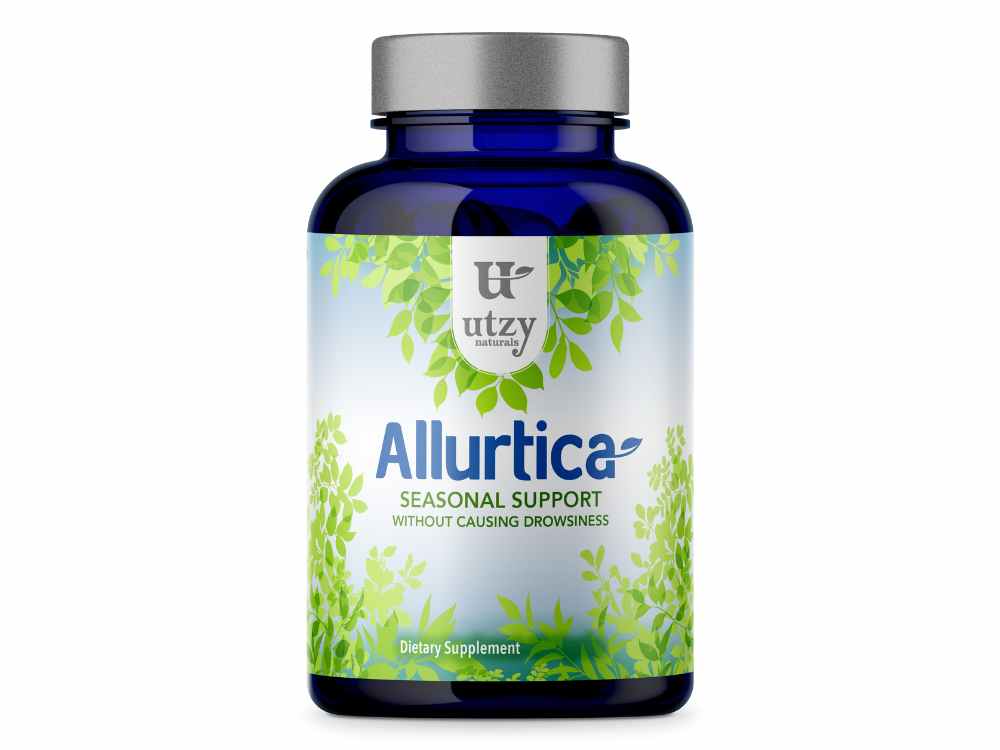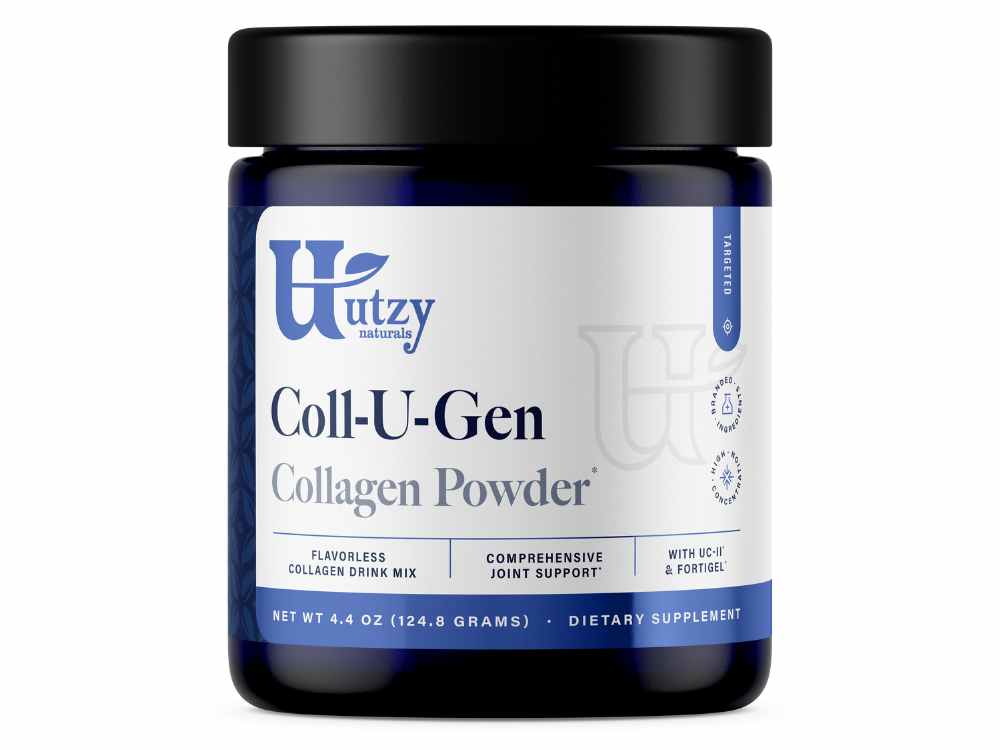Your Cart is Empty
COLLECTIONS:
SPECIAL OFFERS:
LEARN:

Five Ways to Support Your Gut
October 10, 2023 5 min read
Your gut health impacts almost every aspect of your health.
It's responsible for turning the foods you eat into the energy. Needless to say, having a healthy gut is vital for overall health and wellness.
Below we dig into the importance of gut function, as well as tips for improving your gut health.

Why Is Gut Health Important?
The gut is comprised of over 100,000 billion micro-organisms that make up what is called thegut microbiome.
It plays a critical role in our health considering it’s the site for digestion and absorption of food, where our metabolism begins, where the majority of our immune system is found, and where brain chemicals (such as serotonin and dopamine) are created.
Research related to gut health is constantly evolving, and scientists are discovering the important role that the gut microbiome has on health; especially in areas such as metabolism, immune system and mental health.
The composition of the gut microbiome can change over time. That’s because the environment that we live in, the foods we consume, and how we manage stress in our lives can either have a positive or negative impact on our gut.
Therefore, incorporating healthy lifestyle habits on a daily basis may help improve the overall composition of the gut microbiome. (1,2,3,4).
As Hippocrates said, “all disease begins in the gut,” and that’s why improving the health of the gut is one of the first steps to improving your overall health.
Good vs. Bad Bacteria

Our gut microbiome is comprised of “good” and “bad” bacteria. Good bacteria thrive off of a healthy lifestyle while “bad” bacteria thrive off of an unhealthy one.
To have a healthy gut composition, it’s important to have more “good” bacteria than “bad” bacteria.
Pretty simple, right?
So how can we develop an environment with more “good” bacteria than “bad?” Below are some ways to do this.
How To Support Your Gut

1. Eat Prebiotic and Probiotic-Rich Foods:
Research has found that consuming prebiotic and probiotic-rich foods can be beneficial for improving the composition of the gut (5,6).
- What are prebiotics? These are natural, non-digestible food ingredients that are linked to promoting the growth of helpful bacteria in the gut. They are known as the "good" bacteria promoters and essentially feed the “good” bacteria.Prebiotics can be found in foods such as bananas, onions, garlic, leeks, asparagus, and artichokes.
- What are probiotics? These are a source of "good" bacteria (or live cultures) just like those naturally found in the gut. There’s a variety of strains of probiotics, and each strain is helpful for different health conditions.You can find probiotics in foods such as fermented dairy such as yogurt, kefir, and aged cheeses, as well as kimchi, sauerkraut, miso, and kombucha.
2. Decrease Sugar Intake:

Consuming foods high in sugar can feed the “bad” bacteria and kill off “good” bacteria. Unfortunately, sugar is found in a variety of foods, so it’s important to be mindful of sugar consumption.
Some common foods that may be high in sugar include baked goods, candies, sports drinks, low-fat yogurts, cereal, flavored coffee drinks, and fruit juices. Sugar can also be found in foods that you may not think of: including ketchup, BBQ and spaghetti sauces, salad dressings, canned soups, and Vitaminwater.
It can be helpful to read the nutrition facts label and ingredient list on products to help reduce your sugar consumption. Pay attention to the number of grams of sugar per serving in products, as well as look in the ingredient list for sugar with a less obvious name.
Common alternative names for sugar to be aware of:
•Cane sugar
•Honey
•High fructose corn syrup
•Rice syrup
•Caramel
In addition, any word that ends with “ose” is another name for sugar (such as fructose and sucrose).
3. Focus on Stress Management:

How can you manage stress?
Below are some tips for managing your stress levels:
•Talk with a friend or loved one
•Do some type of physical activity
•Listen to your favorite music
•Write in a journal
•Spend time in prayer
•Read a book
•Take a bath
•Diffuse essential oils
Along with practicing stress management techniques, taking amagnesium supplement may also help promote relaxation.
4. Improve Your Sleep:

Sleep can have a large impact on the health of our gut because our gut microbiome is affected by circadian rhythms, stress, and diet.
Getting adequate sleep at night allows our body to rest and recharge, and when we don’t get enough of it, it can put stress on our body and cause an imbalance in the circadian rhythm.
In addition, when we don’t get enough sleep at night, our appetite hormones can become imbalanced and lead to a higher consumption of processed and sugary foods.
Consumption of those types of foods may impact gut health in a negative way by fueling the “bad” bacteria instead of the “good” (8).
Aim to have at least eight hours of good quality sleep at night.
Improving the quality of your sleep can happen by avoiding electronics an hour before bed, keeping your room on the cooler side, not eating or drinking right before bedtime, and cutting caffeine in the afternoon.
In addition, if you find you need more support to help you fall asleep and stay asleep, check out ournatural sleep aids for additional support.
5. Practice Positive Thinking:

Some researchers call the gut our “second” brain because there’s a direct link between the health of our gut and the health of our mind (9,10).
That’s why having a positive outlook may help improve the health of the gut.
How can you practice positive thinking?
Below are some ways to integrate positive thinking into your life:
•Keep a gratitude journal
•Make a list of everything you accomplished each day
•Surround yourself with positive people
•Spend less time on social media
•Spend time in prayer
Things that may wreak havoc on the gut:
Now that we’ve discussed ways to support your gut, let’s talk about things that may influence the gut microbiome in a negative way.
Those include:
•Processed foods
•High sugar consumption
•A stressful lifestyle
•Consuming a high amount of alcohol
•Using personal and household products that contain toxins
•Not getting enough sleep
•Having a negative mindset
•Taking antibiotics
Please note: There will always be stressful moments in our lives, and we may not always eat the most healthy foods or always have a positive mindset, and that’s okay. The goal is to try to incorporate more lifestyle habits that will help feed the “good” bacteria vs. the “bad” bacteria.
Conclusion
The gut is an important part of our overall health, and as you can see, the health of the gut depends on the health of our lifestyle, diet, and moods.
Try incorporating these five tips for supporting your gut and notice the difference that it makes.
_____________________________________________________________________

Autumn Enloe
MS, RD, LD, CLT
Autumn Enloe is a registered dietitian in Minnesota. She has a private practice where she focuses on helping women take care of themselves through proper nutrition, supplement and lifestyle adjustments. She provides remote nutrition coaching and frequently posts free nutrition content and recipes at her website: www.autumnenloe.com. In her free time she enjoys chasing around her toddler, laughing with her husband, creating recipes in the kitchen, and practicing yoga.
Leave a comment
Comments will be approved before showing up.
Also in Health
Subscribe
Sign up to get the latest on sales, new releases and more …
Join the Utzy Naturals Club!
Sign up and get the latest on sales, new releases, and more...









